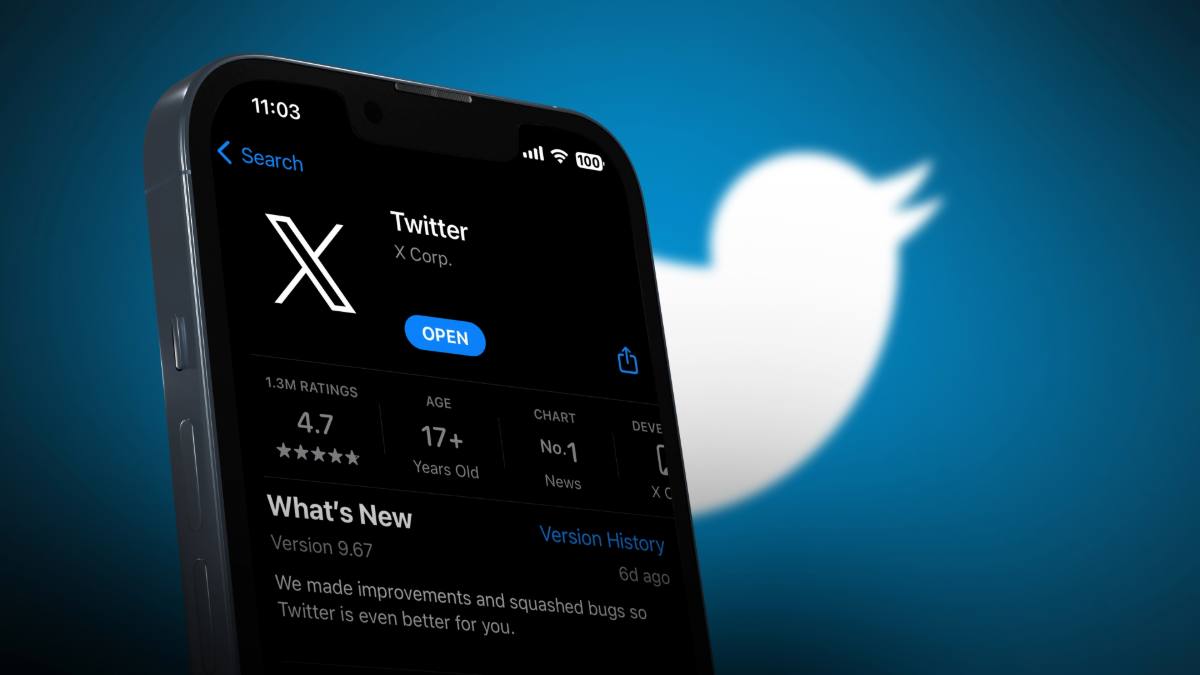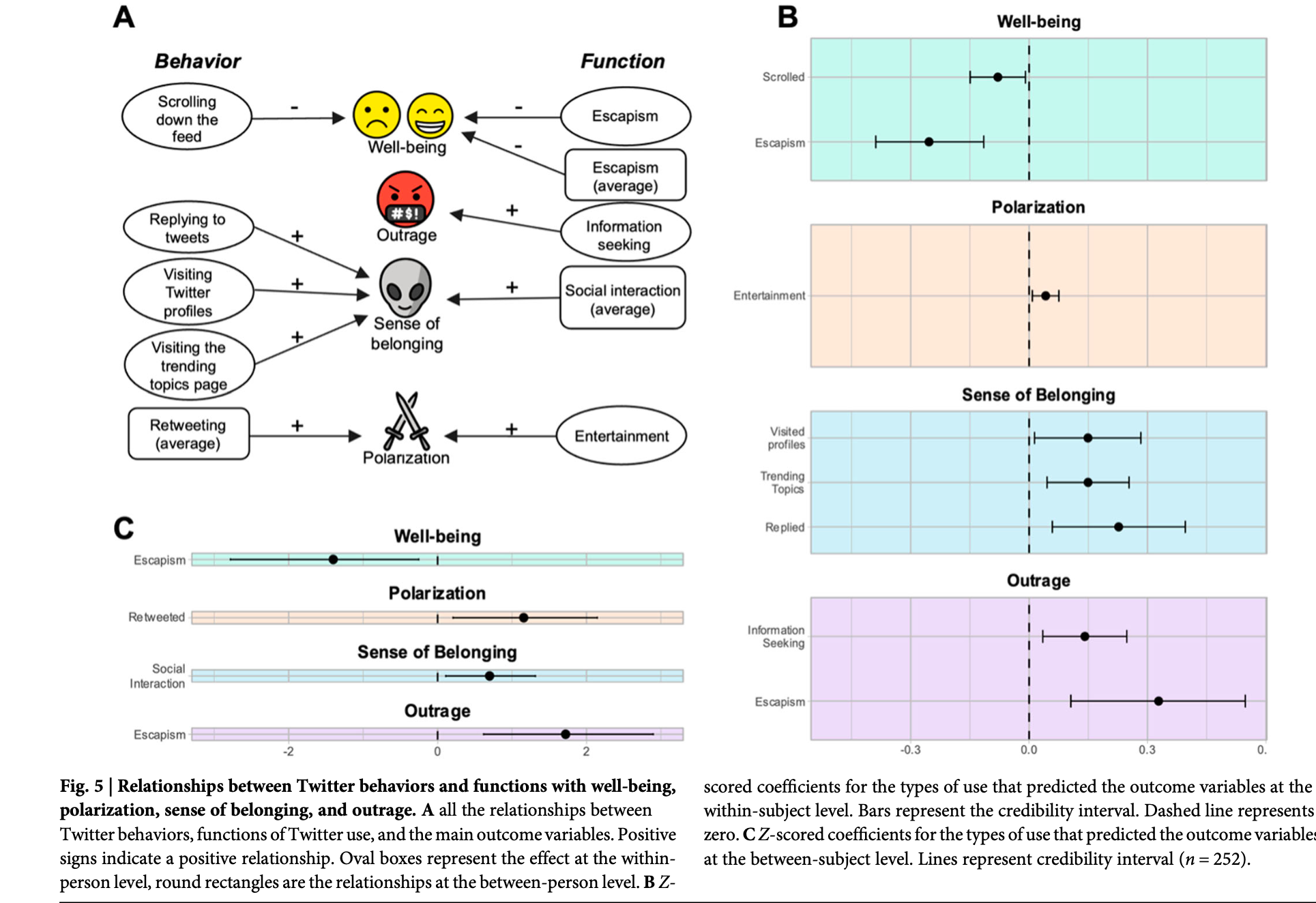Twitter Use Related to Decreases in Well-Being, Increases in Political Polarization, Outrage, and Sense of Belonging
Prithvi Iyer / Mar 7, 2024Much has been written about the reduced standards and policy enforcement on X, formerly Twitter, since Elon Musk acquired the platform in 2022. The site is awash in racism and bigotry, mis- and disinformation, and other harmful content. But even before Musk’s acquisition, the platform wasn’t exactly squeaky clean. Prior research has detailed the relationship between the use of Twitter and phenomena such as political polarization and belief in false information.
In 2021, University of Toronto researchers Victoria Oldemburgo de Mello, Felix Cheung, and Michael Inzlicht set out to examine “the psychological impact of Twitter use as a function of its features and affordances” and how that can shape polarization, feelings of belongingness, and outrage. The researchers surveyed 252 participants from a representative sample of U.S. Twitter users five times per day over seven days, producing over 6,000 observations. The study's results, published in Nature, reveal that Twitter use is related to decreases in well-being and increases in political polarization and outrage. These effects were consistent even when accounting for demographic and personality traits.
Previous research on the social impact of Twitter use has often relied on data accessed via the company’s API. This data included variables such as the number of retweets, mentions, followers, and replies. While this data provides insight into how engagement with Twitter can affect variables like polarization, it does not account for the subjective human experience of engaging with the platform. To address this methodological gap, the researchers employed experience sampling. Participants were asked to report on how they felt after using Twitter five times a day for seven days. The surveys were sent in two-hour intervals, but the time of day was randomized. This allowed the researchers to study the impact of Twitter on well-being over time for the same individual while also facilitating comparison between participants, also known as within-subject and between-subject comparisons. This experimental design provides a more nuanced understanding of how social media use affects people’s well-being.
Results
The researchers provide compelling insights into the psychological impact of Twitter use on emotional well-being, political polarization, and moral outrage. To assess emotional well-being, participants were asked to indicate what emotions they felt in the past 30 minutes. Over time, individual participants reported more negative emotions after spending time on Twitter. Twitter use was also linked to increased boredom and loneliness but was found to be unrelated to anxiety levels. Echoing prior research, this study also found Twitter to increase polarization among participants over time; however, the magnitude of this effect was small, but that could be attributed to the relatively small sample size of the study.
It’s not all bad news. Interestingly, the study found that using Twitter was linked to an increase in people's sense of belonging, indicating that social media can positively impact building social connections. This increase was only observed when looking at individuals over time (within-person level), suggesting that for some people, using Twitter was associated with feeling more connected and valued in their online communities.
Unlike previous research studies, this paper was also interested in how the rationale for using Twitter shapes its psychological impact. From their screening survey, the researchers identified five reasons people use Twitter: entertainment, gathering information, escaping reality, social connections, and self-promotion. The researchers then analyzed how these reasons and behaviors affected the participants' well-being, polarization levels, and moral outrage.
The findings indicated that passive scrolling was negatively correlated with emotional well-being at the individual level, but this effect was not as strong as expected. However, replying to others' tweets, checking trending topics, and viewing others' profiles were associated with an increased sense of belonging for users. On the other hand, retweeting was strongly linked to increased polarization among users - meaning those who retweeted a lot tended to be more polarized. None of these Twitter behaviors were found to be associated with changes in outrage.
The study also found that using Twitter to escape from reality was linked to lower well-being and higher levels of outrage. Using Twitter for entertainment was associated with higher levels of polarization, while those who prioritized social interaction on the platform found increased belongingness. Participants who used Twitter for news consumption and information gathering experienced increased outrage over time.
These findings suggest that how people use Twitter and similar services can have various impacts, both individually over time and between different people. Interestingly, the researchers found no evidence that variables like age, gender, and personality moderated the effects of Twitter on well-being and polarization levels. The figure below illustrates these findings:
Takeaways
The findings from this study suggest that people who used Twitter a lot were “lonelier and more bored; people who retweeted a lot were more polarized; people who used Twitter to avoid their problems (escapism) had lower well-being and higher outrage levels; and people who used Twitter for social interactions had a higher sense of belonging.”
Various types of use cases for Twitter can shed light on its psychological impact. For example, those who used Twitter by engaging with others via responding to posts, checking trending topics, and visiting other profiles reported increased social belonging. Surprisingly, participants who reported using Twitter for entertainment purposes were more polarized, suggesting that entertainment on Twitter may be a product of engaging with divisive content, which leads to more polarization. Thus, these findings indicate that “many of the effects of Twitter use are explained by psychological processes that happen within the same person and that they have practical significance in people’s lives.”
It’s best to exercise caution before generalizing these findings to social media platforms at large. For one, the study examined the relationship between variables two hours apart, and these findings may change when looking at a longer time frame. This study only looked at active Twitter users, and it is plausible that users who suffered adverse effects from the platform stopped engaging with it. Unfortunately, it will be hard to tell how changes to Twitter (now X) would alter these findings. Nonetheless, this research provides crucial insights into the relationship between social media and well-being, highlighting its dangers and potential benefits.
Authors


